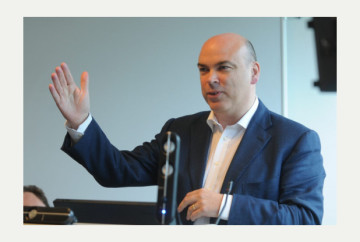 British technology magnate Mike Lynch has appeared in a US court to defend himself against allegations of fraud related to the sale of his company, Autonomy, to Hewlett-Packard (HP) in 2011.
British technology magnate Mike Lynch has appeared in a US court to defend himself against allegations of fraud related to the sale of his company, Autonomy, to Hewlett-Packard (HP) in 2011.
Lynch described his experience of the trial as “surreal”, emphasising that he was not involved in the transactions under scrutiny.
Lynch co-founded Autonomy in 1996, and it became one of the UK’s leading technology firms. Despite once being described as the British Bill Gates and Steve Jobs, Lynch now faces the possibility of up to 25 years in prison if convicted.
Prosecutors in San Francisco have spent weeks presenting their case to the jury, alleging that Lynch orchestrated a scheme involving back-dated contracts and other tactics to inflate Autonomy’s value. The firm was sold for over $11 billion (£8.6 billion), marking the largest-ever takeover of a British tech company at that time.
HP wrote down Autonomy’s value by $8.8 billion just a year after the acquisition, claiming it had been misled into overpaying for the company, which specialised in software that extracted useful information from unstructured data sources such as phone calls, emails, and videos.
Lynch’s defence team argued that HP failed to conduct proper due diligence before the purchase. They sought to distance Lynch from other Autonomy executives, including former Chief Financial Officer Stephen Chamberlain, who has been prosecuted for fraud.
Testifying under questioning from his lawyer, Lynch stated that his focus at Autonomy was on technology and marketing, leaving financial matters to others. He compared the scrutiny to finding bacteria in a spotless kitchen.
Lynch, a former UK government adviser who has served on the BBC and the British Library boards, resisted extradition to the US. However, he was extradited following a UK judge’s 2022 ruling in HP’s favour in a similar civil fraud case, in which HP seeks $4 billion in damages.
Alongside Lynch, Autonomy’s former finance executive Stephen Chamberlain is also on trial.





